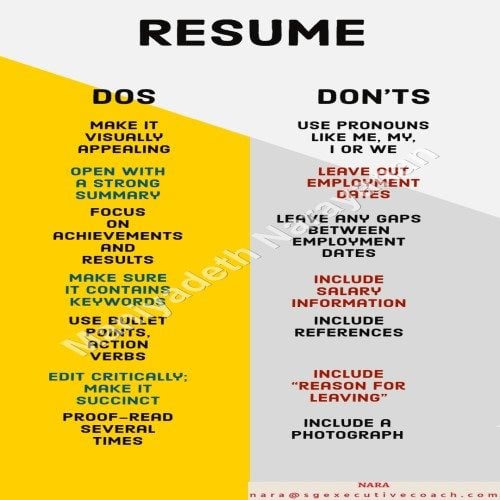Apr 8, 2021 in Career Coaching
What makes a good resume?
There are some “Do’s” (must have) and “Don’ts” (must avoid) that you need to bear in mind when writing your resume.
It's your turn now! Let's support each other by clicking "Helpful".
+1

DISCUSS #Relationship
DISCUSS #Parenting
The resume, from the French word “summary,” is the primary “marketing tool” of a job seeker. It is, in fact, a written summary of your career history and your marketable skills, strengths and work experience.
Imagine you are a “product” that you want to sell in the marketplace. Then your resume should serve as your “sales or product” brochure. In other words, a resume should help “sell” you as the right fit for a position and secure an interview with the hiring company you are interested in.
The conceptual starting point for all resumes is an analysis of demand. That is, who is “buying” and what specifically is the “buyer” looking for in the ideal candidate? Resumes should build from an awareness of the needs that hiring managers have now or will have in the near future. You must spend time understanding demand in order to maximize your marketability.
A resume should create a positive picture of you in the mind of the reader. There are no hard and fast rules for writing a resume. While the focus of a resume is on your career history, professional skills and accomplishments, there are some “Do’s” (must have) and “Don’ts” (must avoid) that you need to bear in mind when writing your resume; they are delineated in the infographic shown below. These guidelines apply to both hard copy and electronic resumes.
Add to myWE:
I hope this short discussion is useful to you








 Thank you for your help!
Thank you for your help!